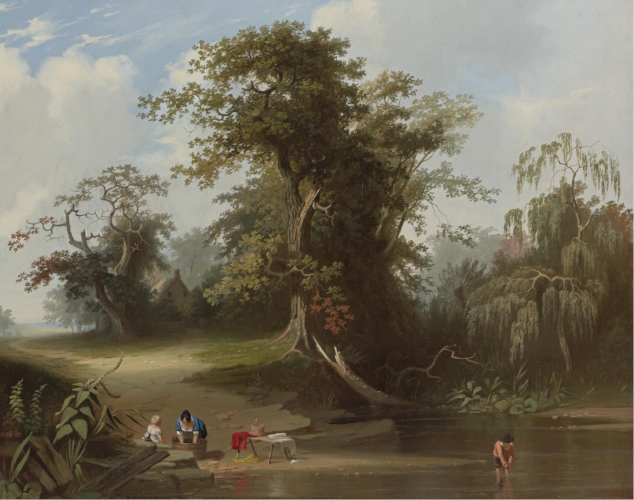A Connecticut governess is hired by a Missouri family during the Missouri-Kansas border war.
The author is anonymous; but an excerpt, republished in 1895 by Louis Klopsch, editor of The Christian Herald (in a collection called A Budget of Christmas Tales and also including, e.g., Dickens’s “A Christmas Carol”) is there attributed to “Mrs. W.H. Corning,” about whom I can find no information. Though disfigured at the end by a melodramatic dénouement, and throughout by sentimentalism (especially as regards one Aunt Phebe, a sort of female counterpart of Harriet Beecher Stowe’s Uncle Tom), the novel gives us a close view of 19th-century Missouri life, and, more generally, a chillingly plausible account of the way in which average, moderately selfish people may be led by habit and tribal belief into horrific cruelty and casual murder.
“Evidently by an unpracticed hand” but “written with great freshness of feeling, and a fine perception of character.” Putnam’s, November, 1856
“We beg to congratulate” the author on the novel’s “good spirit and general truth to nature—at any rate, to nature as seen from a feminine point of view in New England”; it includes some “artlessly successful . . . character-painting.” Saturday Review, February 21, 1857
“The story . . . is interesting and readable, and that goes a long way towards making a good novel. The scenes of Western border life are vivid and graphic, and have the air of being real.” Athenaeum, March 21, 1857
Download this week’s novel:

